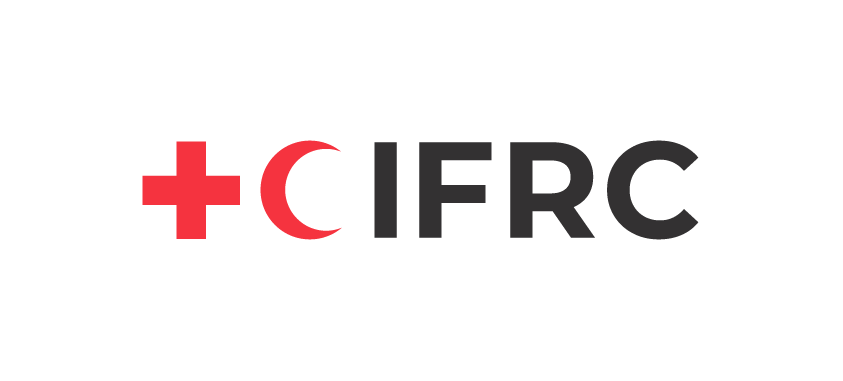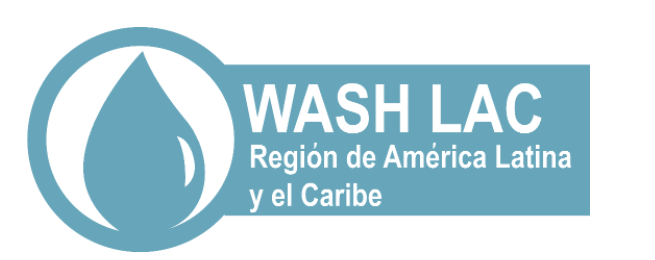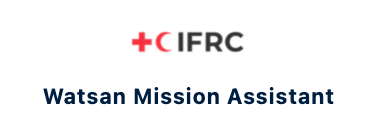
Americas
The Americas region is home to over 1 billion people which represents an approximate of 13 per cent of the world’s population. As the second most disaster-prone region in the world, the challenges of the COVID-19 pandemic overlap with other existing crisis and recurring emergencies, like poverty, food insecurity, widespread displacement and disasters caused by natural hazards. In 2021, the IFRC Americas region supported an important number of emergency operations: 19 emergency operations, reaching 93,330 people in 14 countries. Out of these figures, 14 operation had a WASH component, reaching 61,286 people with WASH services. Additionally the region had 33 National Society Response Plans launched for COVID-19, and 3 National Societies involved in the emergency response of Hurricanes Eta & Iota.
The Americas region includes 35 National Societies and IFRC supports the region through one country office (Venezuela) and 5 country cluster delegations (South Cone, Andean Countries, Central America, Latin Caribbean, English- and Dutch- Speaking Caribbean), each covering a cluster of countries. Canada, the United States of America, and Mexico coordinate actions and provide support in close coordination with the regional office based in Panama.
Advocacy and strategic material
Red Cross Red Crescent materials
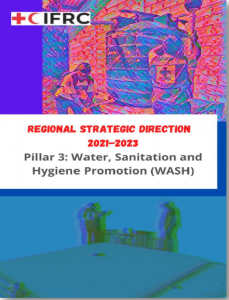 The Americas' Regional Strategic Direction for Water, Sanitation and Hygiene (WASH) 2021-2023 is a contextualized version of IFRC's 2017 Global Strategic Direction, with the aim of having an updated reference document to guide the WASH programmatic and operational efforts in our region. After 2023, this strategy will be revised and evaluated, taking into account the National Societies' feedback and experiences during this period, the materialization of official guidances for the implementation of Strategy 2030, as well as new sectorial trends.
The Americas' Regional Strategic Direction for Water, Sanitation and Hygiene (WASH) 2021-2023 is a contextualized version of IFRC's 2017 Global Strategic Direction, with the aim of having an updated reference document to guide the WASH programmatic and operational efforts in our region. After 2023, this strategy will be revised and evaluated, taking into account the National Societies' feedback and experiences during this period, the materialization of official guidances for the implementation of Strategy 2030, as well as new sectorial trends.
But this document already includes some of the latest thematics promoted by our sector, including intersectoral efforts with Protection, Gender & Inclusion (PGI), Migration, Education, Climate Change/Green Response, Community Engagement & Accountability (CEA), among others. It is aligned with global strategies like Strategy 2030, and guiding principles of the Red Cross Red Crescent Movement to strengthen the capacities of Americas National Societies in WASH interventions. Click on the image to view the full version of the Regional Strategic Direction. The summary version is available here.
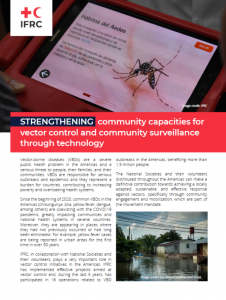 Vector-borne diseases (VBDs) are a severe public health problem in the Americas, representing a serious threat to people, their families, and their communities, especially for populations in vulnerable conditions (those with limited access to safe water and sanitation) and with social and economic risk factors. Since the beginning of 2020, common VBDs in the Americas (Chikungunya, Zika, Yellow Fever, Dengue, among others) are coexisting with the COVID-19 pandemic, greatly impacting communities and national health systems.
Vector-borne diseases (VBDs) are a severe public health problem in the Americas, representing a serious threat to people, their families, and their communities, especially for populations in vulnerable conditions (those with limited access to safe water and sanitation) and with social and economic risk factors. Since the beginning of 2020, common VBDs in the Americas (Chikungunya, Zika, Yellow Fever, Dengue, among others) are coexisting with the COVID-19 pandemic, greatly impacting communities and national health systems.
The IFRC, in collaboration with National Societies and their volunteers, plays a very important role in initiatives aimed at vector control in the Americas and has developed important projects and participated in operations related to VBD outbreaks. IFRC is committed to the creation of a Regional Vector Control Program in the Americas, sustained by the National Societies, to save lives and minimize the risks of VBD using technology to strengthen community capacities in controlling vectors and community surveillance. Click on the image to view the full version of the Regional Concept Note on Vector Control. The summary version is available here.
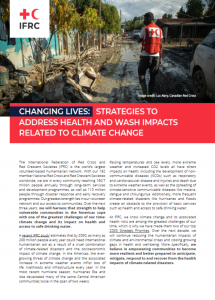 In the Americas region, climate change poses a constant threat to the health of its populations: an increasingly warm climate and increasingly intense, frequent, and unpredictable weather extremes disproportionately impact the poorest and most disaster-prone communities. The health impacts of climate change could be greatly reduced through proven interventions in climate-resilient health systems, including health services, and through health determinants such as water, sanitation, food systems and disaster risk reduction.
In the Americas region, climate change poses a constant threat to the health of its populations: an increasingly warm climate and increasingly intense, frequent, and unpredictable weather extremes disproportionately impact the poorest and most disaster-prone communities. The health impacts of climate change could be greatly reduced through proven interventions in climate-resilient health systems, including health services, and through health determinants such as water, sanitation, food systems and disaster risk reduction.
For more than two decades, the International Federation of Red Cross and Red Crescent Societies (IFRC) has been assessing the risks of global warming and integrating climate adaptation into all areas of work. In addition, IFRC has been working closely with National Societies and their volunteers to understand climate change and to help their communities reduce risks. IFRC, in collaboration with National Societies in the Americas, proposes to work with communities to strengthen their local resilience to climate change by boosting their capacities in health, water, hygiene and sanitation.
We will work together on different components such as knowledge and understanding of climate change, capacity building, community health with an emphasis on climate change, preparedness and response to health emergencies with a focus on "Green Response", as well as communication, awareness, education and advocacy. Click on the image to view the full version of the Regional Concept Note on Health & WASH impacts of climate change. The summary version is available here.
External Materials
Regional Water, Sanitation, and Hygiene group for the Latin American and Caribbean region (WASH LAC)
Website for the regional WASH cluster, where IFRC is co-leader at the R4V platform for the WASH sector, and member of the regional Strategic Advisory Group. It includes sectoral coordination and technical information specific for the region.
Country specific resources
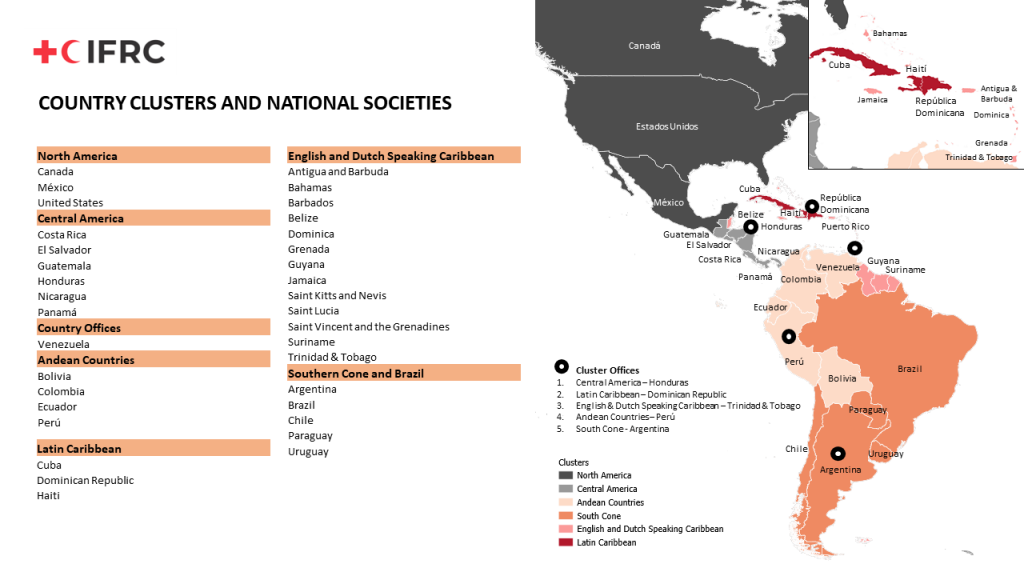
Southern Cone
Argentina
Chile
Uruguay
Paraguay
Brazil
Andean Countries
Peru
Bolivia
Ecuador
Colombia
Venezuela
Central America
Panama
Costa Rica
Nicaragua
El Salvador
Honduras
Guatemala
Latin Caribbean
Cuba
Dominican Republic
Haiti
English- & Dutch- Speaking Caribbean
Barbados
Bahamas
Belize
Dominica
Saint Kitts and Nevis
Saint Vincent and the Grenadines
Antigua and Barbuda
Grenada
Guyana
Jamaica
Saint Lucia
Suriname
Trinidad & Tobago
To include resources on this page, or for more information on IFRC initiatives please contact: wash.geneva@ifrc.org
